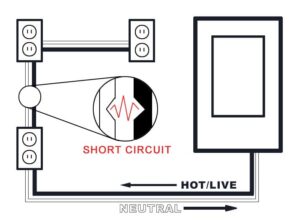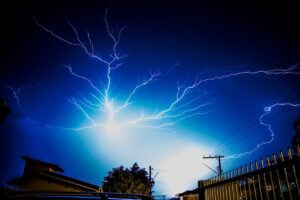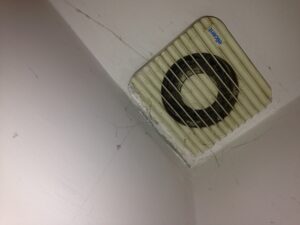With electricity, we’re able to keep our houses warm in the winter, cool in the summer, and power appliances, lights, and outlets through the house. If installed correctly, electrical wiring in the home is very dependable and safe. With proper precaution, many homeowners can even change out a light fixture or outlet.
As beneficial as is it, there are some dangers when working with electricity. There are big issues, such as a storm taking out power lines and plunging a neighborhood in darkness. Smaller issues, such as overloading an outlet, can trip a circuit breaker and knock out power to a room.
One of the most dangerous situations with electricity is when a short circuit happens. In overhead lines, it can cause spectacular explosions. In the walls of your home, it generates a lot of heat and could even cause a fire by overheating or creating sparks.
What is a short circuit?
 Think of the wiring running through your home. For the most part, each room has its own circuit, a loop of electricity that powers everything. If you open the electrical panel, you can see just how many loops your home has. There could be one for the master bedroom, the office, basement, and so on.
Think of the wiring running through your home. For the most part, each room has its own circuit, a loop of electricity that powers everything. If you open the electrical panel, you can see just how many loops your home has. There could be one for the master bedroom, the office, basement, and so on.
From the panel, electricity is sent out along that loop on a hot or live wire to the room. Once it reaches the end of the line, the power is brought back to the panel via a neutral wire. The voltage is weakened a bit as it hits outlets, lights, washing machines, and dryers, in use or not.
This loop must be completed throughout the line to work properly. If the loop is disrupted anywhere along the path, the circuit isn’t complete, and no power is delivered. This could happen if wires were improperly installed, worked loose from a fixture, or became damaged over time.
Electricity will always take the path of least resistance, so if it can shorten the distance, it will, causing a shorter circuit. Hence, a short circuit. It can cause a lot of heat, sparks, and even fire. Hopefully, the circuit breaker will sense the disparity and switch off. If not, the house could catch fire.
That’s why it’s so important to get a home inspection when buying a home, use a professional residential electrician during a remodel, and make sure a new-build home passes code. A house is the biggest investment most of us will ever make, so take every step possible to make sure it’s safe for you and your family. Additionally, ensuring your electrician has advanced qualifications, such as a Cert IV Electrical Instrumentation, is key to knowing they are skilled in precise electrical systems.


